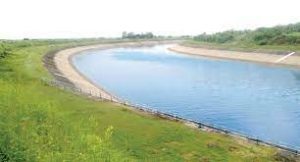Sujalam 2.0 Grey Water Recycling Project:

On the World Water Day (22nd March), the Ministry of Jal Shakti launched a countrywide project to reuse grey water, or run-offs from kitchens, bathing and laundry.
- The campaign would focus on the creation of institutional level greywater management assets in Panchayat Ghar, healthcare facilities, schools, Anganwadi Centres (AWCs), community centres and other government institutions.
- Creation of individual and community greywater management assets will be encouraged.
- With active participation from all States and local communities’ great success was achieved under the Sujlam 1.0 campaign which was started in August 2021.
- More than 1 million soak pits were built at household and community level across the country.
- The funds to execute the activities for greywater management will be sourced from Swachh Bharat Mission Grameen Phase-II or through 15th Finance Commission tied-grants or MGNREGS or through convergence of all.
- Grey water is defined as wastewater that is produced from household processes (e.g. washing dishes, laundry and bathing).
- Grey water can contain harmful bacteria and even faecal matter that contaminates soil and groundwater.
- So far, India does not have a focused policy framework for management and usage of grey water in urban and rural areas.
- However, some guidelines for treatment of wastewater do exist.
- For example, the Central Public Health and Environmental Engineering Organisation (CPHEEO) has specified permitted discharge standards for treated water; use of treated wastewater in agriculture and horticulture (MoHUA, 2012).
- The Central Ground Water Board (CGWB, 2000) directs that treated wastewater can be used as a source of artificial ground water recharge once it meets standards and is compatible with existing groundwater.




